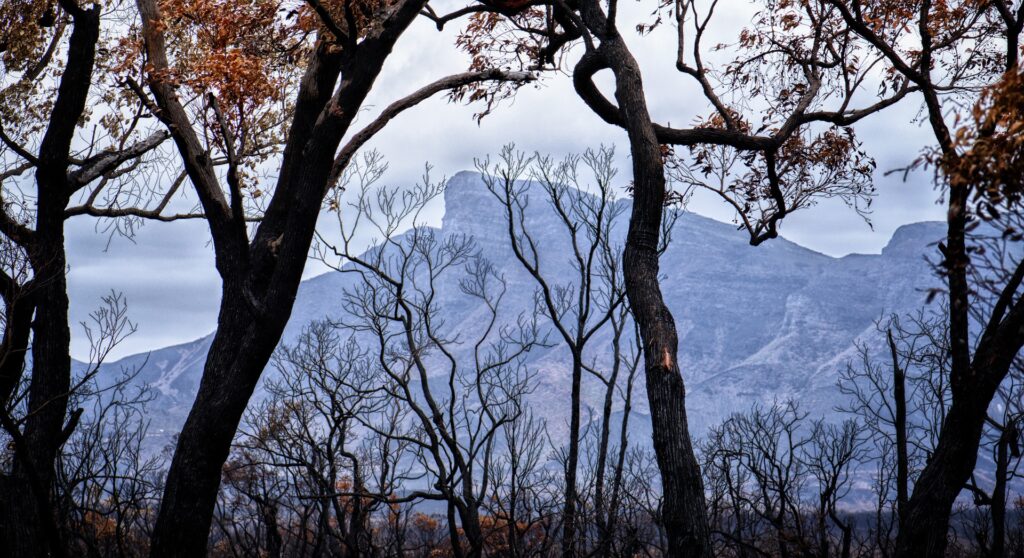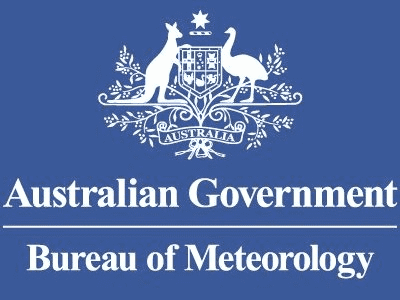About the Climate Emergency
The name of our organisation – Psychology for a Safe Climate – recognises our concern about the risk of losing a safe climate. Sadly, since our formation more than 10 years ago, the climate crisis has intensified as ecosystems and climate systems collapse, ultimately threatening the future survival of human civilization.
First of all: take care of yourself when reading this and other climate reports
How you read climate impact reports bears thinking about before you read further.
- It is important to be kind to yourself, and to be in as calm and grounded a state as one can be.
- Ideally, read the report with a trusted companion or a group of colleagues.
- Choose the time of day to read and a pleasant setting, perhaps first walking or meditating in a natural setting.
- It can be helpful to read slowly, noting your feelings, taking pauses to focus on your breath and checking in with yourself and with others.
- Try not to take in more than you can digest, and take time out for refreshments.
Activists, researchers, policymakers and community members are deeply troubled. Young people globally are worried about their future. They feel betrayed by governments. Children are often experiencing “an additional layer of confusion, betrayal, and abandonment because of adult inaction towards climate change”.
The latest IPCC report
The latest IPCC 2023 report makes for difficult reading for us all. In 2018, IPCC highlighted the unprecedented scale of the challenge required to keep warming to 1.5°C. Five years later, that challenge has become even greater due to a continued increase in greenhouse gas emissions. “The pace and scale of what has been done so far, and current plans, are insufficient to tackle climate change”, write the report authors.
The UN Secretary-General, António Guterres, said the report “is a clarion call to massively fast-track climate efforts by every country and every sector and on every timeframe. Our world needs climate action on all fronts: everything, everywhere, all at once.” And scientists join in saying it’s “now or never”, in what is in effect a final warning for governments on the climate.
“Climate resilient development becomes progressively more challenging with every increment of warming. This is why the choices made in the next few years will play a critical role in deciding our future and that of generations to come”, write IPCC scientists.
Despite these warnings, and hope for change, it has recently been reported by the WMO that the world is almost certain to experience new record temperatures in the next five years of more than 1.5C above pre-industrial levels. The breaching of the crucial 1.5C threshold, could have dire consequences, and would represent a marked acceleration of human impacts on the global climate system, and send the world into “uncharted territory”.
Scientists report we are in a vicious cycle of impacts – the Black Summer bushfire emissions from August 2019 to July 2020 may have influenced the onset of rare triple-dip La Niña. It is the first time since advanced satellite technology that a bushfire event has been widespread enough to impact climate models.
David Spratt, climate policy analyst in his science update Climate Code Red writes that Prof. James Hansen, “sometimes affectionately referred to as the ”godfather” of modern climate science”, has dropped a bomb in his recent release of a new draft paper which finds that “the climate is much more sensitive to increases in greenhouse gas than generally thought. This new analysis means that the current level of greenhouse gases, if maintained, would be enough in the longer term to melt all ice sheets and push up sea-levels by more than 60 metres.”
A research study reported in May 2023, led by Prof Tim Lenton at the University of Exeter, UK, highlights the phenomenal human cost of failing to tackle the climate emergency. It focuses on the human cost rather than the normal focus on financial cost. They found that, with the world on track for 2.7C of heating with current plans, billions of people will be driven out of the “climate niche” in which humanity has flourished for millennia, exposing them to unprecedented temperatures and extreme weather. This would mean 2 billion people experiencing average annual temperatures above 29C by 2030, a level at which very few communities have lived in the past.
The analysis is the first of its kind and is able to treat every citizen equally. “Economic estimates almost always value the rich more than the poor, because they have more assets to lose, and they tend to value those alive now over those living in the future. We’re considering all people as equal in this study.”
Facing the reality
There is distrust of the UN Conference of Parties (the body that decided on climate policy for the UN) process, as current rules governing the United Nations Framework Convention on Climate Change (UNFCCC) permit private sector polluters to exert undue influence on UNFCCC processes. Little wonder that the UN Secretary General Antonio Guterres said, “We seem trapped in a world where fossil fuel producers and financiers have humanity by the throat.” This state of affairs drives citizens to despair about the future.
Moreover, our economy in Australia, and globally, is dependent on increasing economic growth by endlessly manufacturing and shipping consumer products. Reduction in industrial production risks economic collapse, yet continuity on this path is totally at odds with the actions needed to seriously tackle the escalating climate crisis.
The national security risk is not known by the public. In April 2023, Former Defence Force chief Admiral Chris Barrie, a member of the Australian Security Leaders Climate Group, said he understood the Office of National Intelligence (ONI) had delivered a landmark report on external climate risks to the government in December but a declassified version had not been released to the public. The group urged the Albanese government to release a secret report on the national security risks of climate change even though its contents may alarm Australians.
Barrie said it was crucial to inform the public about the security implications of warmer temperatures, rising sea levels and increased natural disasters. Potential impacts included famines caused by global warming, conflicts over access to scarce resources and the mass migration of people to Australia from vulnerable Asia-Pacific nations in the coming decades. Yet this report has not been released, denying the public knowledge of the reality of the climate and ecological impacts.
How are you responding to the crisis we are in?
This latest climate news is alarming for all on Earth. How can we best hear and respond to this alarm, caring for ourselves and others while mustering motivation and commitment for desperately needed action?
Eminent Australian Climate Scientist and IPCC reviewer, Joelle Gergis, and author of Humanity’s Moment: A Climate Scientist’s Case for Hope urges us to connect emotionally with what we hear and read.

“When we are finally willing to accept feelings of intense loss-for ourselves, the planet, and every child’s future- we can use the intensity of our emotional response to finally propel us into action. We must have the heart and the courage to be moved by what we see. Because the truth is that life as we know it hangs in the balance; every fraction of a degree of warming matters.”
– Joel Gergis
Our work at Psychology for a Safe Climate
Our work is focused on supporting people emotionally as they face the climate reality. We help people connect with themselves, and with others who share similar concerns about broken eco and social systems, and facilitate engagement in collective action for repair.
The research of climate psychology tells us that rather than suppress or avoid our distress, we need to welcome it as a healthy response to the climate crisis. If we are not feeling some level of fear and grief, we are in denial.
Acknowledging the complex of feelings we have in response to climate breakdown is crucial for sustained action. These feelings demonstrate how much we care about our world, our communities, our lives and our loved ones. This caring is the basis for the action and change our world needs from us all right now.
This work of acknowledging our feelings needs to be done with others, for climate breakdown involves us all, both in its causes and its effects. We need to use this report as a stimulus for reaching out to others, not only to share ideas about what we can do in response, but first to ask one another how we feel. Climate distress is very difficult, if not impossible, to bear alone.
Listening to our own and others’ emotional oscillations helps us to accept the necessity and normality of feelings of grief, hope and despair. They are part of the emotional ebb and flow that accompanies major loss and change. Being held by a large group can make all the difference to how we respond as we become more able to engage with an open heart and a stronger sense of shared purpose. This is what our leaders are supposed to help us do. True leadership can hold the fear and grief evoked by the climate crisis and offer a vision for the future we can work towards together.
Support for yourself or others
Our Climate Cafe series is space for you to have those conversations with others, and to learn you are not alone. It may help you prepare to have difficult or challenging conversations with the important people in your life.
We also offer workshops for groups working together to build awareness, trust and support within the group. Contact us for more information.
For mental health professionals, our Professional Development series provides a space for you too, to explore your awareness of the climate reality, to have conversations with peers, and prepare you to be listed as a Climate Aware Practitioner, so that members of the public and communities can find the help they need.
Useful Websites
For resources on the psychological impact of climate change and support resources for those distressed by the reality of climate changes, see the Resources page.
The following websites are useful resources for information on the climate emergency.
Climate Council
The Climate Council is an Australian independent body that provides public communication on the climate crisis. Comprised of climate scientists, health, renewable energy and policy experts. Their 2021 publication, Aim high, go fast: Why emissions need to plummet this decade provides important, up to date information on the climate reality.

The Lancet Planetary Health
The Lancet Planetary Health is an open access journal that seeks to be the pre-eminent journal for They produce an Annual Countdown Report detailing the impact of climate change on health.

NASA Global Climate Change
NASA’s Global Climate Change website provides excellent information about climate change including scientific data, videos and other educational tools such as the Climate Time Machine videos which show the global impact of climate change over time.

BreakThrough
The National Centre for Climate Restoration (Breakthrough) is an independent Australian think tank that develops critical thought leadership to influence the climate debate and policy making.

CSIRO
CSIRO is Australia’s national science academy and innovation catalyst. They provide information about Australia’s past, current and future climate to industries, governments and communities plan for and adapt to the changing climate.

Australian Bureau of Meteorology
The Australian Bureau of Meteorology produces an annual State of the Climate report. The reports draw on the latest climate research, encompassing observations, analyses and projections to describe year-to-year variability and longer-term changes in Australia’s climate.

Australian Academy of Science
The Australian Academy of Science provides independent, authoritative and influential scientific advice. They have produced a landmark climate change report, Risks of a 3 degree warmer world.

Climate Outreach
Climate Outreach is a UK-based international organisation that helps people understand the complex issue of climate change in order to create a social mandate for climate action. The website has useful resources to drive engagement and action.

Skeptical Science
Skeptical Science is dedicated to explaining climate change science and rebutting global warming misinformation

Yale Climate Communications
Yale Climate Communications conducts research on public climate change knowledge, attitudes, policy preferences, and behaviour, and the underlying psychological, cultural, and political factors that influence them.

The Climate Mobilization
The Climate Mobilization is building a movement of people across the United States to reclaim the future by initiating an emergency-speed, whole-society Climate Mobilization, to reverse global warming and restore a safe climate. (Since the change of government in the US in early 2025, this site has been taken down. A stark illustration of the emergency.)

